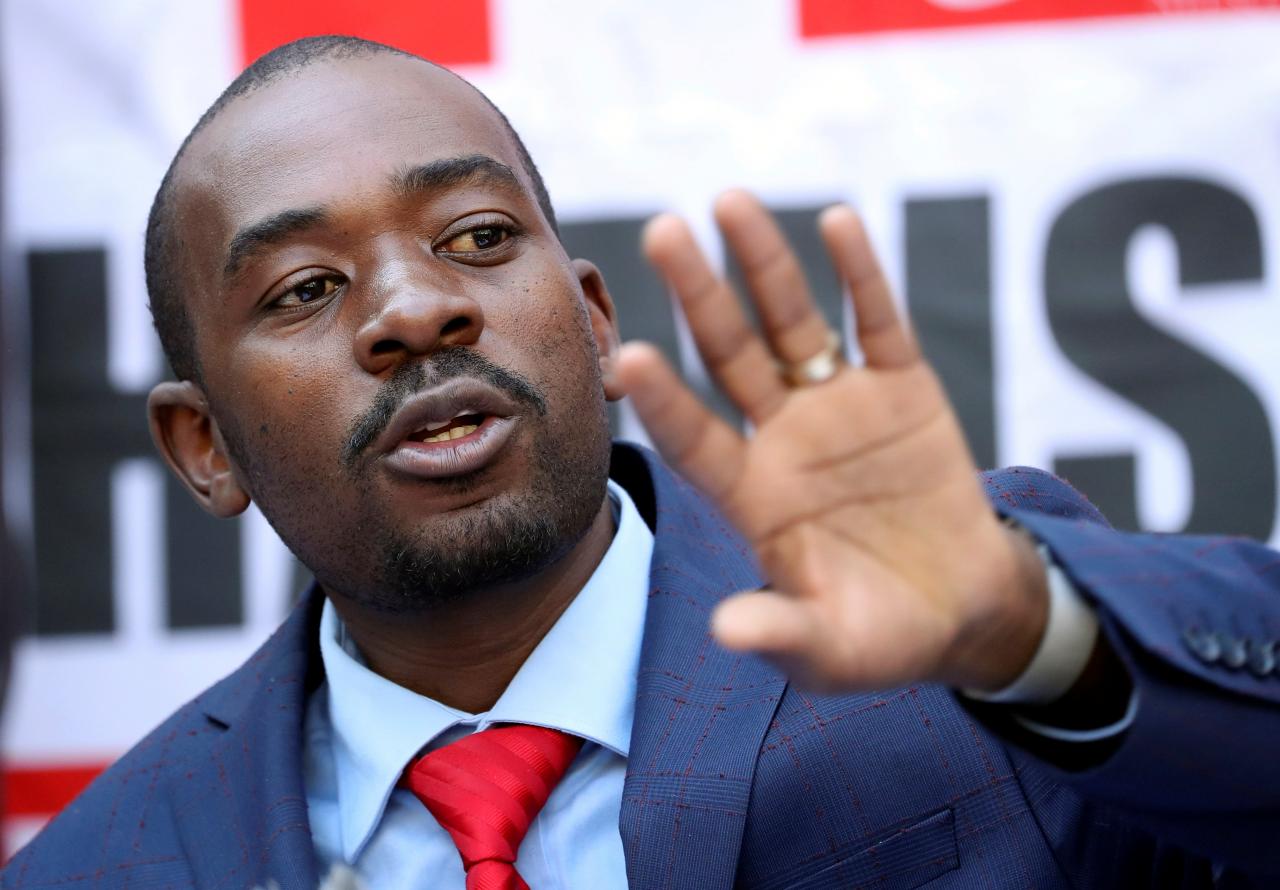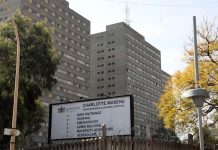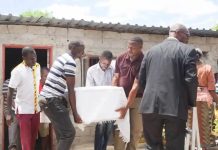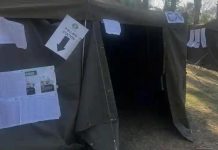THE current resurgent attacks — which included physical brutality, looting and intimidation — by xenophobic and criminal elements against fellow Africans in South Africa are appalling and heartbreaking. The violence, pitting blacks against each other, is needless and does all of us collectively as Africans no good at all.
We call upon our African brothers and sisters to show a full sense of brotherhood and sisterhood consistent with the timeless wisdom of ubuntu. Brother against brother or sister against sister is inimical to ubuntu; the abiding African wisdom that umuntu ngumuntu ngabantu (you are because I am).
As Martin Luther King Jr said, there is ultimately no winner when violence becomes the tool of resolving problems. Violence begets violence, and hence we don’t need it. We need peace, harmony and progress among ourselves as Africans.
“The ultimate weakness of violence is that it is a descending spiral, begetting the very thing it seeks to destroy. Instead of diminishing evil, it multiplies it. Through violence you may murder the liar, but you cannot murder the lie, nor establish the truth. Through violence you may murder the hater, but you do not murder hate.
“In fact, violence merely increases hate. So it goes. Returning violence for violence multiplies violence, adding deeper darkness to a night already devoid of stars. Darkness cannot drive out darkness: only light can do that.
Hate cannot drive out hate: only love can do that.”
These attacks in South Africa have been happening for a very long time. While they are routinely described as xenophobic or acts of criminality, what is evident is that they target black Africans. These are deliberate and systematic attacks based on race and country of origin rather than aliens per se. Black Africans are seen and perceived as the only foreigners and thus targeted.
The resulting conflict is terrible for our communities because they foment hate and tensions between people, African brothers and sisters. It divides people when our forefathers and liberators fought to unite them on the basis of common humanity, for our liberation and freedom.
Kwame Nkrumah famously said: “Our independence is meaningless unless it is linked up with the total liberation of Africa.” The declaration encapsulated the comradeship that later defined the struggles for liberation. We should never lose that spirit, even today as many of our citizens across the continent suffer under brutal regimes.
It is sad that the violence we are talking about now is happening in the land of some of Africa’s greatest liberators, such as Oliver Tambo, Albert Luthuli, Winnie Mandela, Robert Sobukwe, Steve Bantu Biko and, of course, Nelson Mandela.
The land from where the great national anthem in many African countries, including Zimbabwe, at one time, Nkosi sikelel’iAfrica (God bless Africa), was written by Enoch Sontonga.
South Africans are our brothers and sisters, historically, geographically and culturally. These borders we are fighting and killing each other over were imposed on us. We all know that.
That is why during the anti-colonial struggles across the continent we joined hands and fought in the same trenches. From Ghana to Nigeria, Ethiopia, Zambia, Mozambique, Angola, Botswana, Lesotho and Zimbabwe, we fought against apartheid together.
Ask the African National Congress (ANC) and former South Africans presidents, Thabo Mbeki, Jacob Zuma and Kgalema Motlanthe, they all know this self-evident truth. Ask them too they all know who Dumiso Dabengwa was even though he was from Zimbabwe, the land where Luthuli — a great ANC leader and Nobel laurette — was born.
Zapu fought alongside the ANC, while Zanu was a PAC ally. The people of Africa joined hands to help each other fight colonialism and imperialism.
Think of the role Samora Machel and Kenneth Kaunda played to liberate South Africa. Zimbabweans — and I don’t mean Robert Mugabe and his Zanu party — fought alongside South Africans. Nigeria did a lot.
While we acknowledge the socio-economic problems faced by South Africans — inequality, unemployment, social service delivery, poverty, illegal immigration, crime and drug-trafficking — there is no doubt that violence is not the answer. Targeting black Africans will not help resolve these issues.
Today, you turn on different television channels or go through social media, it is almost guaranteed you will see images and read about violence among blacks in South Africa. This should not be happening. We should be seeing images of Africans working together to build South Africa to a greater country and indeed building Africa itself.
Yet what we have seen from time to time are scenes of violence, looting and occasionally killings, brother upon brother, sister upon sister. This is not right; it’s wrong and tragic. The sooner we stop fighting each other the better for everyone.
Already, we have seen businesses being destroyed and commerce being disrupted as truckers that use South African routes fear for their lives. Threats of retaliation against South African drivers and businesses in other parts of the continent demonstrate that this is a vicious cycle in which there is no winner.
Violence should not become a norm in any society. This can be an overwhelmingly scary thought; violence is not something that should even be thought of as a means of resolving issues or retaliation. Violence, unfortunately, is a vicious cycle; it notoriously difficult to break.
It is time to take decisive action to protect all — women and children, locals and foreigners — in South Africa and stop these attacks. Priority must be given to individual security and ending looting.
As a democratic country that South Africa is, there are many ways and instruments of law and order to address these issues, including illegal immigration and violence. While acknowledging what is already being done — which is not enough — we urge South African authorities to step up their efforts urgently and take more robust action.
Sadly, the violence is concentrated among the poor. It is the poor attacking the poor. But also over the years, it has slowly emerged that in some cases violence is caused and even directed by the powerful and elites through acts of commission and omission.
Beyond this, there is an important dimension to what is happening in South Africa: the state of the African economy.
Most Africans, including Zimbabweans, are in South Africa because back home their economies are struggling, failing or collapsed. Some are there because of internal conflicts and civil wars.
Bad politics and poor leadership, coupled with failure of governance, have partly created this situation. Some African leaders misrule and mismanage their countries and, hence send waves of immigrants and refugees into South Africa.
When these Africans try to fight back against failed leaders by voting with their feet, their will is subverted and they leave in frustration. They go to different countries, mainly South Africa. And sadly sometimes South Africa then supporters such governments, the very regimes that fail to run their countries and cause people to migrate to look for the proverbial greener pastures.
When people’s votes are stolen, when they are intimidated, when they are brutalised and killed, they run to neighbours expecting to be received with ubuntu, of course within the confines of the relevant constitution and laws.
Illegal immigration is a product of failed leadership, failed policies and failed governance. This is the case with Zimbabwe in relation to South Africa.
To resolve the problems in South Africa and other African countries, we need urgent economic and structural reforms to stabilise our economies, attract investment and create jobs, while ensuring social service delivery and social safety nets.
If we stabilise our countries internally, then we can move on to push for regional integration and then building our continent, bloc by bloc, through integrated markets and free trade areas. This will address many internal problems and also deal with such issues as jobs, crime and immigration.
We urgently need a new beginning in Africa where African fraternity is the common denominator. A new Africa where the Sadc is a community of African people and where the African Union (AU) is a union of people — not just leaders, or sometimes, as the case might be, mere clubs of dictators.
Sadc — including other regional blocs — and AU must play a more dynamic role in pushing the continent’s development agenda and resolving African problems.
Fixing Africa through stabilisation and integration programmes and processes will deal with each country’s internal issues and thus we can, in the long run, address the push and pull factors causing problems like the one of xenophobia and violence in South Africa.
Together we can do it as we did fighting colonialism. The new front for us — from Cape to Cairo, Lagos to Nairobi, and indeed across the length and breadth of this beautiful, rich, especially in human capital — we have a big demographic dividend — and natural resources, yet poor continent — is that of economic reform, development and prosperity.
As Frantz Fanon said, every generation must, out of relative obscurity, discover its mission and fulfil it. Now is the time for us to do so and urgently so — not fight each other.






